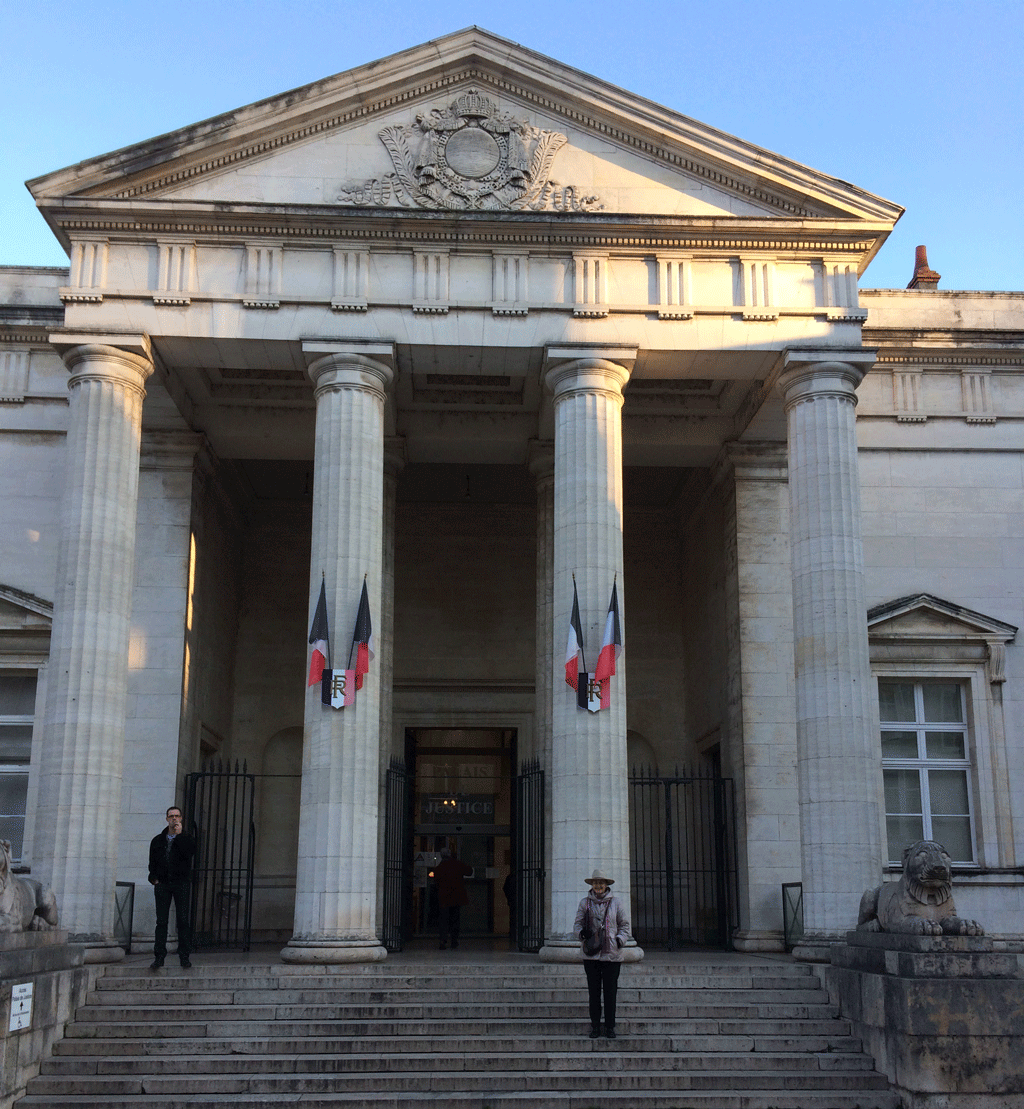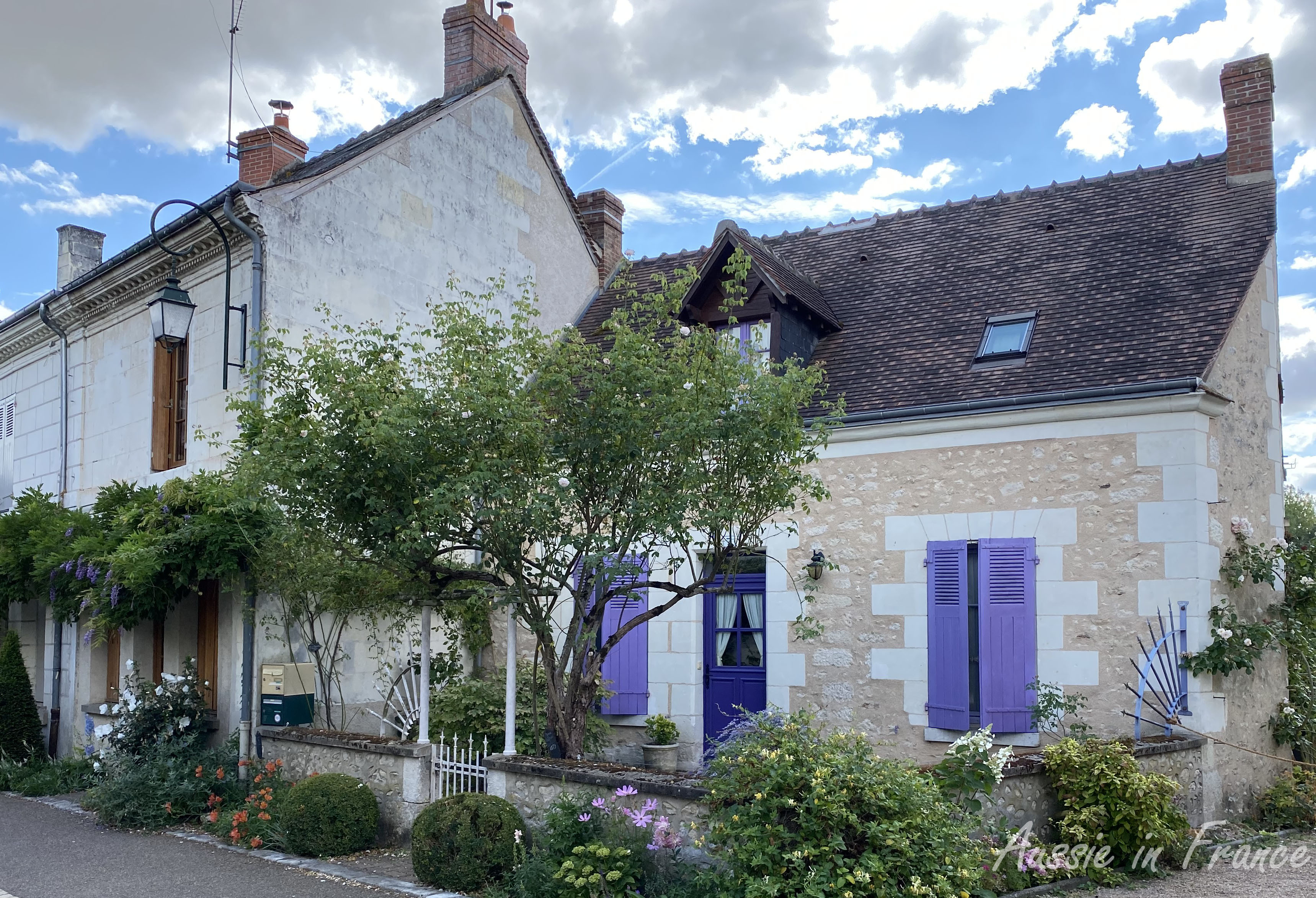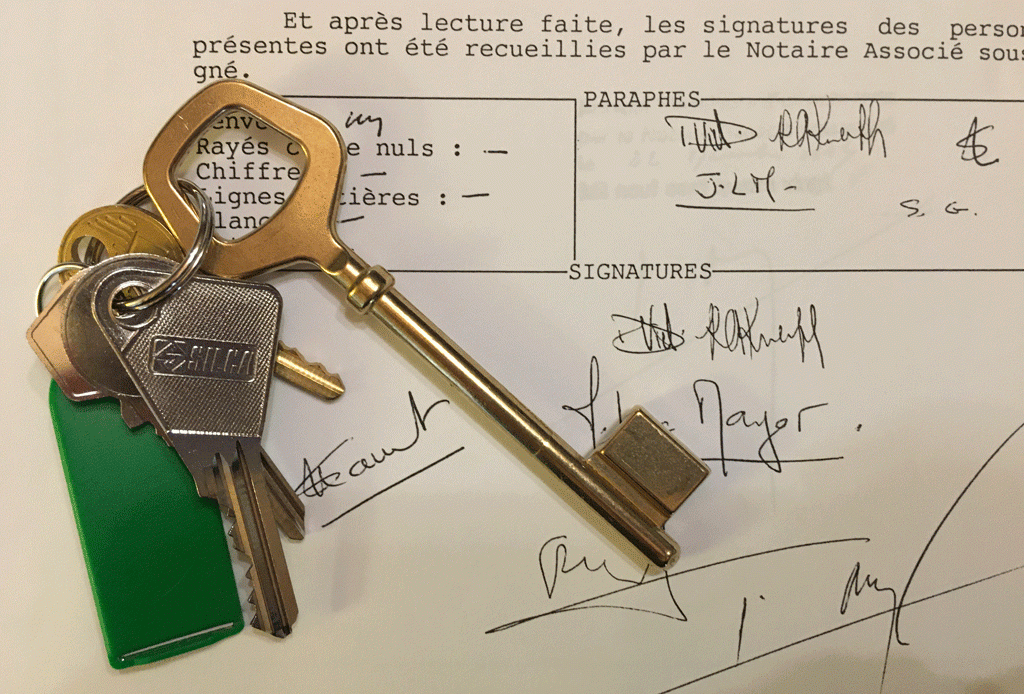Before I answer the question, a little terminology. Although many people say “sworn translation” and “traduction assementée”, the correct terms are “certified translation” and “traduction certifiée”. It’s the translator who is sworn or assermenté by the court, not the translation.

First, what exactly is a sworn translator (traducteur assermenté)?
In France, a sworn translator or “traducteur assermenté” is also an “expert judiciaire” and attached to either a Court of Appeal (Cour d’appel) or the Cour de Cassation (Court of Cassation or Final Court of Appeal). There is a second list of translators, known as the “liste du procureur ou TGI” but they are not “experts judiciaires” and mainly used for court work in rare languages.
How do you become a sworn translator?
To become a sworn translator, you must have French nationality and be able to prove that you are capable of translating any documents that may be required by the court, police authorities, etc. You do not have to be a professional translator but knowledge of the legal system in France and the countries in which your foreign language is spoken, is essential. The application process takes a year and candidates are approved by a council of sworn translators at the Appeal Court where the application is made.
There are two separate categories: translation (written) and interpretation (spoken). You can apply for one or the other or both and for just one language or several. Applications are submitted in January and the translators / interpreters are sworn in during December. The initial accreditation is for 3 years, followed by 5-year renewal periods, provided the translator/interpreter has fulfilled their obligations.
How do you find a sworn translator?
You can find the list of sworn translators on the website of the Cour de Cassation: https://www.courdecassation.fr/informations_services_6/experts_judiciaires_8700.html Lists are available on other websites but they are mainly designed to offer translation services. You can use the services of a translator anywhere in France.
What are the rates for translations?
Rates for court translations and interpretations are strictly controlled (and not very well-paid).
There are no official rate recommendations concerning certified translations for private individuals. Rates are left entirely up to the translator.
Why do sworn translations always seem so expensive?
A sworn translator is like any other self-employed person in France. They have to pay social contributions in addition to overheads (computer, official stamp, colour printer, paper, envelopes, stamps, wifi connexion, office space, heating, etc.). Some translators have to charge value-added tax of 20%.
The Court also requires that sworn translators attend at least one training session a year.
The documents translated for private individuals vary enormously which makes it impossible to propose a “set rate” for most documents.
The most time-consuming part of many certified translations is the layout as the translation has to resemble the original insofar as possible. Once you have the templates in your computer, the translation itself may not take very long, but you need to accumulate a lot of templates. For example, there are at least 10 different UK birth certificates and the same number of French driver licences. There is a different birth certificate for each state of the United States, not to mention marriage certificates which often have a licence attached. Each state of Australia also has different documents. Driving licences and driving records vary considerably from one country to another and from one state to another.
Scanning documents to make pdfs can take time as well. First, you have to print the original and translation, then stamp all the pages, add a register number and sign them. You then have to scan them one at a time and create the corresponding pdf files.
So, what about actual prices?
The price of a fairly standard birth or marriage certificate can vary, according to the translator and the origin of the document, from 25 to 65 euros or more. The best solution is to find a translator who is specialised in your country’s documents e.g. UK, Australian, US, etc. as they will be able to offer better rates because they already have a lot of the templates. Some translators offer a discount for a large number of documents (naturalisation application, for example).
For one-off non-standard documents, the translator usually charges per word. It seems that the price ranges from about 18 centimes a word to 25 centimes. For longer, more complex documents, it is best to use a translator whose mother tongue corresponds to the target language.
As a sworn translator, I have come to specialise in UK and Australian civil registration documents (birth, marriage, divorce, adoption certificates), Australian and US driver licences and records, French civil registration documents, French driver licences, French diplomas and transcripts (diplômes and relevés de notes), French real estate documents including promesse/compromis de vente, acte de vente and procurations (power of attorney).
What will you need to give the translator?
In the past, before the existence and widespread use of email and scans, translators asked to see the original documents.
Today, many translators work via email particularly with the increase in on-line applications for applying for titres de séjour and exchanging driver licences, for example. At some stage, the applicant will be required to submit the original documents so the authorities will be able to compare them. A copy of the original always accompanies the translation. It is unusual these days to stamp originals.
If working by email, you will need to send the translator a proper scan of the document, not just a photo with your phone. UK documents, in particular, are often outsize and you may need to go to a printer or photocopy shop and have them scan the document and send you the file.
The translator will then give you a quotation and turnaround time and ask to be paid in advance by bank transfer, PayPal, Revolut, etc.
I usually send a pdf of the translation to the customer to check name spelling and numbers in order to avoid errors.
The translation is then printed out, stamped and signed and assigned a number from a register kept by the translator. The translation and original are then stapled together unless a pdf is required.
If a hard copy is needed, I prefer to send it by “lettre suivie”, which is a tracked letter that arrives in the customer’s letterbox.
The French authorities always require the original translation and not a photocopy unless it’s an on-line application, so you may need to order more than one copy. There will be an extra cost.
If you are interested in having a document translated, you can consult my website www.kneipp-translation.com and send an email to kneipp@kneipp-traduction.com to obtain a quote.


